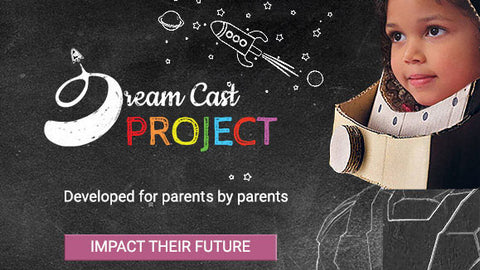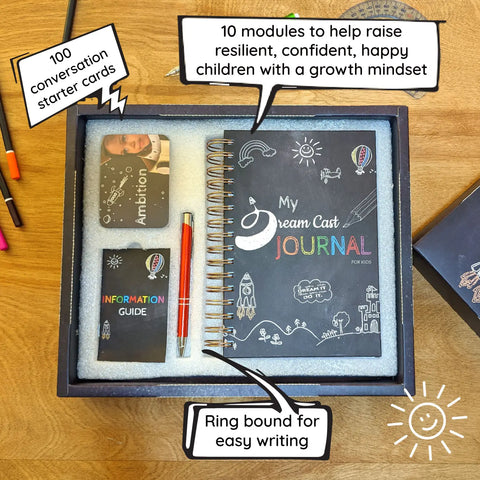3 types of empathy for kids
According to psychologist Paul Ekman there are 3 types of empathy for kids:
- Emotional empathy - this is when we actually feel another person’s emotions as though they were our own.
- Cognitive empathy for kids - With this form of empathy, we can recognize another person’s perspective, but we don’t feel their emotions and instead remain reasonably detached. i.e. when you can understand how another person is feeling.
- Compassionate empathy for kids - This is where we not only understand what someone else is going through and experience many of the same emotions, but we are also compelled to help in any way we can.
Different levels of maturity
Children's empathy develops at different maturity levels and is shaped by learning and daily reminders of opportunities to show empathy for kids. This is why we’ve included many role-play type questions in our Dream Cast Journal for kids. Encouraging our children to think about situations that would require empathy, helps them to more naturally think that way in a real life situation.

Although your child’s empathy levels are partly down to their biology, it’s also got a lot to do with their levels of maturity and life experience. It can be difficult to relate to how another person feels if you’ve never been in the same situation yourself.
You may have a child who is extremely sensitive to the emotions of others. In fact, they may start to cry if they see another child who is upset or hurt. For example, my son will stop his entire soccer match if one kid on the other side of the field falls down. But just because they can sense the other child’s emotions doesn’t mean they know what to do to help.

You might see some unexpected reactions from your child. Like my daughter on the other hand, who rather than helping in that situation, was more likely to just ignore the other child or turn away. But this doesn’t mean that they don’t empathize. They may simply feel overwhelmed or may not understand why the child is upset and therefore not know how to help.
So, if your child doesn’t react the way you think they should to the emotions of others, it could simply be down to a lack of understanding, maturity, and life experience.
Read more: When does empathy develop in kids?
-----------------------
-----------------------
Dream Cast Kids Journal helps teach empathy.
We have included writing prompt to help reinforce the concepts such as empathy and kindness, gratitude and more in both the Dream Cast Journal and Dream Cast Conversation Starter Cards tying the learning experience together perfectly.










